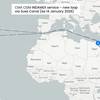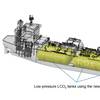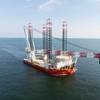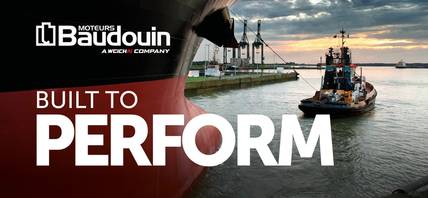The future of a government program to revive western Canadian shipbuilding remains clouded after investigators released a damning report about cost overruns and bureaucratic bungling.
The directors of the B.C. Ferries Corp. resigned after auditors alleged the cost of designing and building a new type of high-speed catamaran ferry had risen from the originally planned $137.9 million to approximately $288.9 million.
The report was the latest bad news to buffet the Pacificat fast ferry project, which was launched in 1994 in hopes of developing and building a lightweight passenger ship in British Columbia that could be marketed internationally.
Provincial auditors claim management of the provincially owned ferry corporation and its shipbuilding subsidiary, Catamaran Ferries International, knew the project had financial and construction problems but tried to hide them from government officials. According to the author of the report, Hugh Gordon, the effort was hampered from the start by unrealistic expectations for completing the ships.
"When you start with a schedule that is unattainable you won't finish it," Gordon told reporters.
The first of the three ships originally authorized was launched last year - two years after schedule to hit the water - and is still being tested before going into service. The other two ships are still under construction.
Cabinet minister Gordon Wilson, who oversees B.C. Ferries Corp., said after the report's release he had lost confidence in its directors, but he dismissed calls by opposition politicians to end work on the final two ships.
Catamaran Ferries International's directors also resigned under pressure from Wilson, who had been an outspoken Liberal opposition critic of the project until last month when he switched parties and joined the cabinet of B.C. Premier Glen Clark's New Democratic Party government. "I'm planning a new direction and that's going to require a new board," Wilson said.
With its long and rugged coast, British Columbia operates passenger and auto ferries as an extension of the province's highway system. But the service has long been dogged by financial and management problems.
The Pacificat ferries have lightweight aluminum hulls and designers hope the first three ships will allow faster service on the current 100-minute run between Vancouver, which is on the mainland, and communities on Vancouver Island.
Sponsored Content
Maritime leaders unite to tackle ocean plastic with launch of new alliance: the Maritime Association for Clean Seas

ABS Wavesight Advantage™: One Intelligent, Connected Maritime Platform to Transform Complexity into Operational Clarity

Subscribe for
Maritime Reporter E-News
Maritime Reporter E-News is the maritime industry's largest circulation and most authoritative ENews Service, delivered to your Email five times per week









